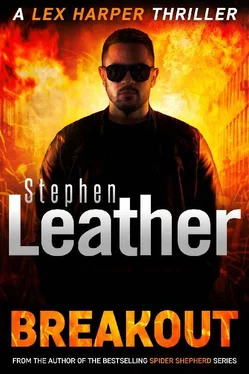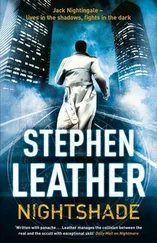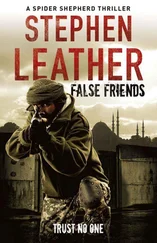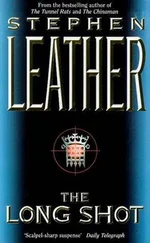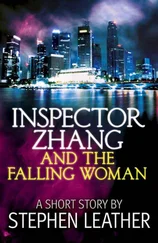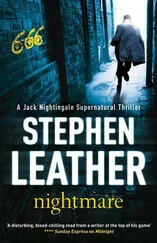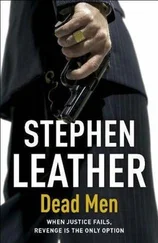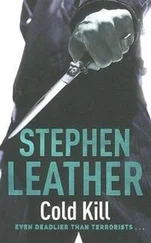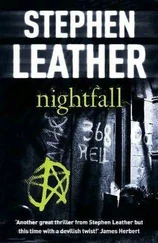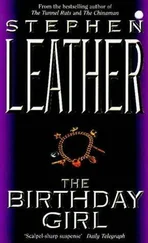He was now past the Bolivian border but not yet safely in Peru, for there was still a short stretch of no man’s land to cross before reaching the frontier on the Peruvian side. He advanced with extreme caution, and went to ground as soon as he saw the Peruvian border post ahead, heralded by a sign reading Puesto de Control - checkpoint. He inched forward again until he could observe the post, where a handful of people were waiting to pass through from the Bolivian side.
Harper could also see another, longer line of tourists, most of them backpackers, waiting on the far side of the border to cross into Bolivia. However, the local bureaucracy evidently required them to fill in a form at the border post, then take it to be photocopied at a print shop that, conveniently, had been set up next to the post. They then had to return with the copy of the form and their passport so they could be stamped at the border post, before the traveller could proceed. Harper had endured such bureaucratic rituals at scores of borders over the years, and knew that each step in the process was mainly designed to provide an additional opportunity for locals to extract a little more cash from wealthy tourists before they crossed the border and became someone else’s opportunity.
He could also see that money-changers had set up on either side of the border, some squatting cross-legged in the dust with an open suitcase full of cash, ready to convert crumpled Peruvian Soles notes into Bolivianos or vice versa. Others, slightly better equipped, had seated themselves at a small table and wooden chair that had been set up in the open at the side of the road. Three-wheeler moto-taxis were parked next to the money-changers on the Peruvian side, at a point where the road widened slightly, also waiting for trade from those crossing from Bolivia.
There was no sign of any sicarios or police at the border and he could simply have dropped down to the road and joined the line of people queueing to pass through the border post, but there was some risk in doing that. His description could have been passed to the officials, with the promise of a reward if he was held until the sicarios could get there, and he had not come so far and risked so much just to become complacent and be trapped at the final hurdle.
He decided to keep to the high ground and work his way along the steep hillside until he was level with the border post. To his relief there was no sign of another fence of any sort, just sparse grassland, studded with rocks. He passed well above two isolated farms clinging to the hillside, and then scrambled down a steep, terraced slope into a dry stream bed. According to his map, the stream marked the line of the border, but unwilling to take the least chance, as he moved on, he kept in cover high on the hillside and still skirted any farms or buildings he saw until he was well beyond the frontier.
Even though he was now safe on the Peruvian side of the border, Harper knew that he could not afford to lower his guard completely. Cartels, narcos and sicarios were not exactly unknown in Peru either - with Bolivia and Colombia, it was one of the three countries that grew 98 percent of the world’s coca leaves between them. Neither the Peruvian cocaine cartels nor the Bolivian, Colombian, Mexican and Brazilian cartels with which they often formed shifting alliances, paid scant attention to national boundaries in pursuit either of narco-dollars or their enemies.
He was still no more than a mile beyond the border and was still alert and very watchful, continuing to steer well clear of the main road from Bolivia. Harper was now confident enough to begin making his way down from the mountainside. As he approached the small Peruvian town of Yunguyo, straddling the narrow neck of the peninsula, he began to work his way through the backstreets of the town. By now his hunger pangs had become almost unendurable and he knew he must have cut a weird and suspicious-looking figure. He was wild-eyed, unwashed and unkempt, with a five-day growth of beard and he was wearing clothes that were crumpled, torn and covered in dirt and dust, most recently from where he had wriggled under the border fence. Despite his appearance, he felt secure enough, and certainly hungry enough, to enter the town. He needed food and was confident that the risk involved in obtaining it was manageable. He continued on his cautious way towards the centre of the town, drawing curious looks from the few people he passed, all of whom appeared to be townsfolk just going about their daily business and none seemed to pose any immediate threat to him.
Yunguyo was a drab, functional small town and even the sprawling town square in the heart of it contained no fountains or monuments, just a concrete-surfaced space, the size of two football pitches laid side by side. None of the market stalls in the middle of the square nor the shops around the edge seemed to be doing much trade. Staying close to the edge of the square, Harper circled the whole of it once, keeping a wary eye out not only for sicarios but also for any Peruvian police or soldiers. Satisfied, he walked into the middle of the square and bought some empanadas from one of the stalls. He wolfed down two of them at once, standing next to the stall, but could eat no more for the moment because after days of starvation, his stomach had shrunk to the size of a clenched fist. However, while he was there, he bought another half dozen empanadas and took them with him in a paper bag, ready for when his appetite returned a little more.
He next walked to a farmacia on the edge of the square and bought some soap, a disposable razor and a toothbrush, before heading for the small single-storey building he had noticed at the far corner of the square with a crudely lettered sign reading ‘ Baño Público ’ - public toilet - painted on the wall above the entrance. He was planning to wash and shave there but as he walked through the doorway, parting a dense cloud of flies as he did so, a hideous stench filled his nostrils. The room was empty but for the filthiest sink he had ever seen, and a dark hole in one corner from which the stench was issuing. Harper held his breath and turned on his heel.
He walked back along the edge of the square and chose a street leading away from it at random. At the far end, looking out over the lake, was a building with a domed red roof, that sprawled over a whole block and towered above its low-rise neighbours. It turned out to be a sports centre. It seemed little used and had been constructed on far too grand a scale for a small town like Yunguyo, perhaps having been built mainly to satisfy the ego of some over-ambitious local politician, or by a drug lord using some of his narco dollars to ensure local support by spreading a little largesse around the town. Whatever the reason, Harper was not going to complain about it, since when he went inside, in return for the equivalent of two US dollars, a stolid looking Aymara or Quechua woman issued him with a threadbare but clean towel and pointed the way to the mens’ changing rooms. There he was able to use a shower that, if not hot, was at least warm, wash and comb his hair, and shave at a newly-installed sink. While he could not wash his clothes, he was at least able to shake the dust out of them and then sponge them down with a damp cloth to remove some of the worst of the dirt. Before leaving, he gave himself a critical once over in the mirror. If not exactly looking like the typical Western tourist, he was at least clean and presentable enough now to pass a casual inspection.
CHAPTER 24
Harper retraced his steps to the town centre. The stallholders had now packed up and gone home for the day, but one of the gaudily painted and decorated local buses was parked in the centre of the square. In Bolivia the bus would have been called a flota but here in Peru, as in many other parts of South America, it was known as a colectivo , one of the numerous small buses that followed a regular route but stopped wherever anyone wanted to get on or off, and even made small detours from its official route in return for the driver’s palm being crossed with a couple of Peruvian Soles . The driver of this one was sitting in the sun, with his back against the bus at the side of the door, and chewing on a coca leaf.
Читать дальше
